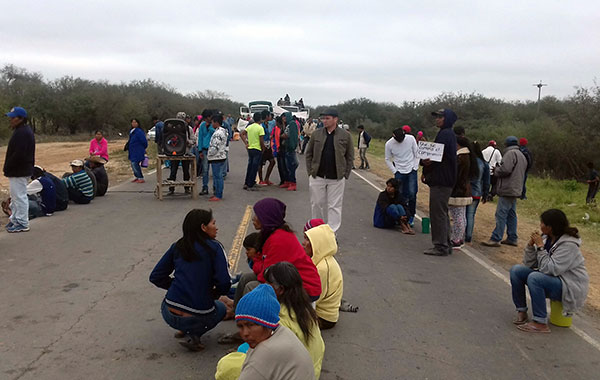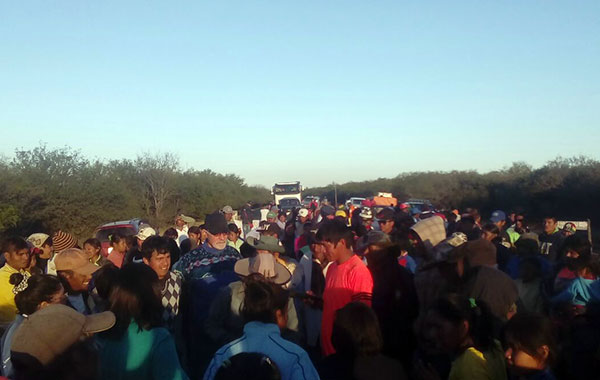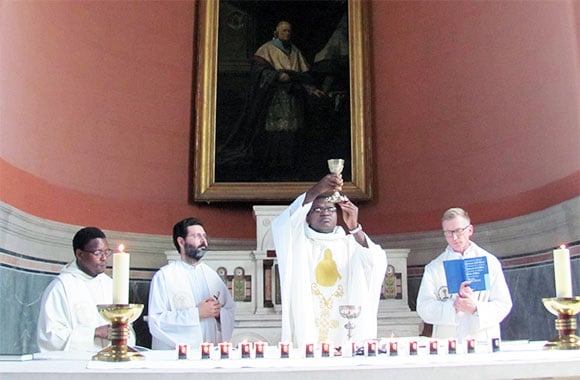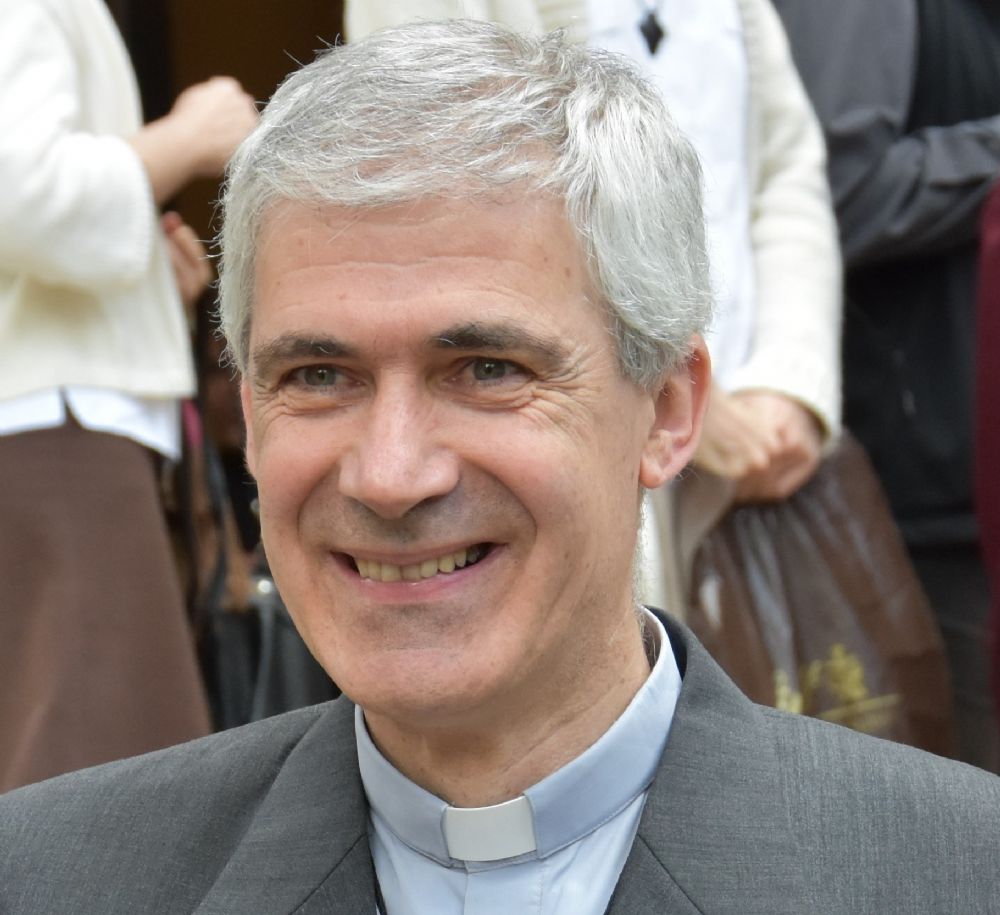Fr. Miguel FRITZ, former General Councillor for Latin America, tells of his recent experience marching with the poor.
“Going out to the peripheries,” as Pope Francis asks of us, is nothing new for us Oblates. That can mean spending hours and days in the street. This was the experience of two Oblates in the Parish of San Eugenio in Teniente Irala Fernández in the Paraguayan Chaco.
I recently returned from the annual assembly of all the religious where we held a demonstration against the unjust judiciary system, marching seven times around the Palace of (In)Justice. Now we have had another demonstration in the Chaco.
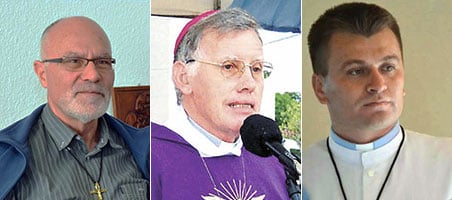
(L – R): Fr. Miguel Fritz, Bishop Lucio Alfert, Fr. Cristóbal Acosta
The Mennonite Cooperative had placed two toll stations on the roads, against the will of the people; and even without the authorization of the competent authorities. In the beginning, the payment of 25,000 Guaraníes (4.50 US $) per vehicle would have added up to 1 million Gs. a month, half a minimum wage. The Paraguayan and indigenous peoples organized themselves and, having exhausted all possibilities of dialogue, decided to close the Transchaco Route, the only asphalt road that crosses the entire Chaco.
Knowing that we were supported by Oblate Bishop Lucio ALFERT, Fr. Cristóbal ACOSTA, the parish priest, and I, Fr. Miguel FRITZ, walked with the people. Nearly 15 days of demonstrations brought us to meetings with various authorities, including in the very house as the President of the Republic, clashes with special police forces, and arrest warrants. But in the end, this solidarity was crowned with the dreamed of success: an order of the national government to take away the toll booths.
In those days “in the street,” we really felt we were “in the periphery,” very close to the people.

